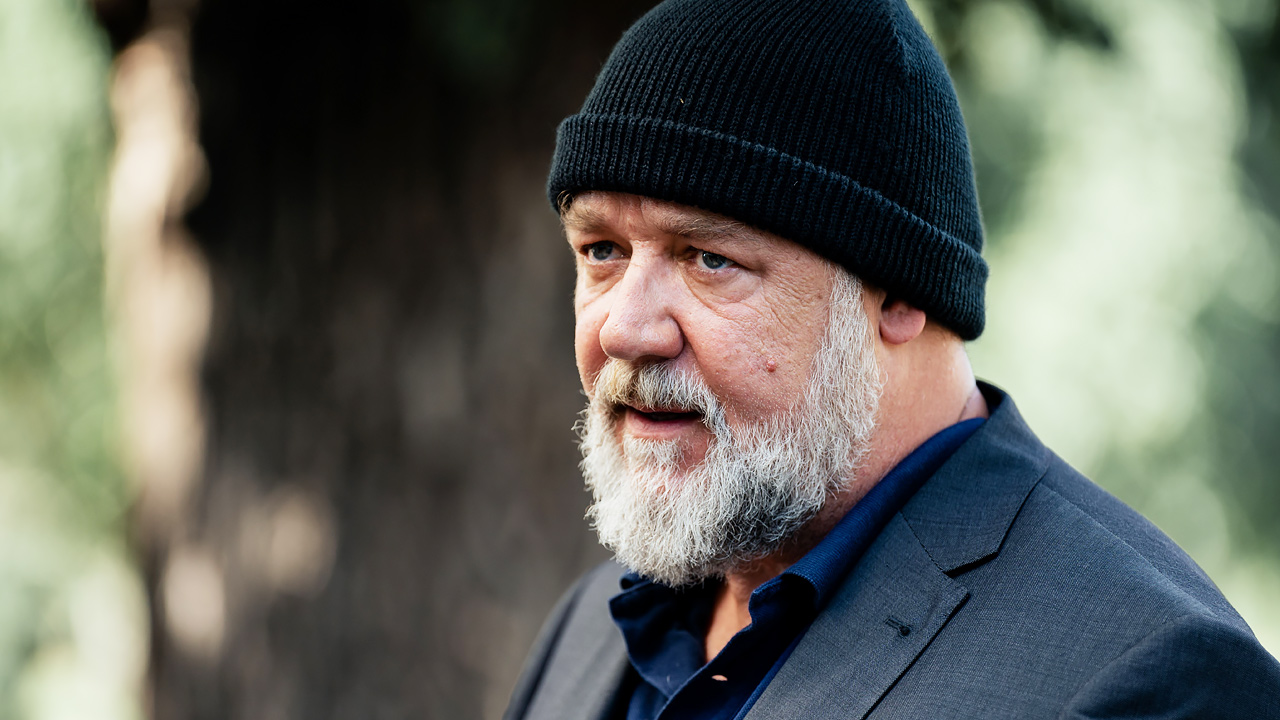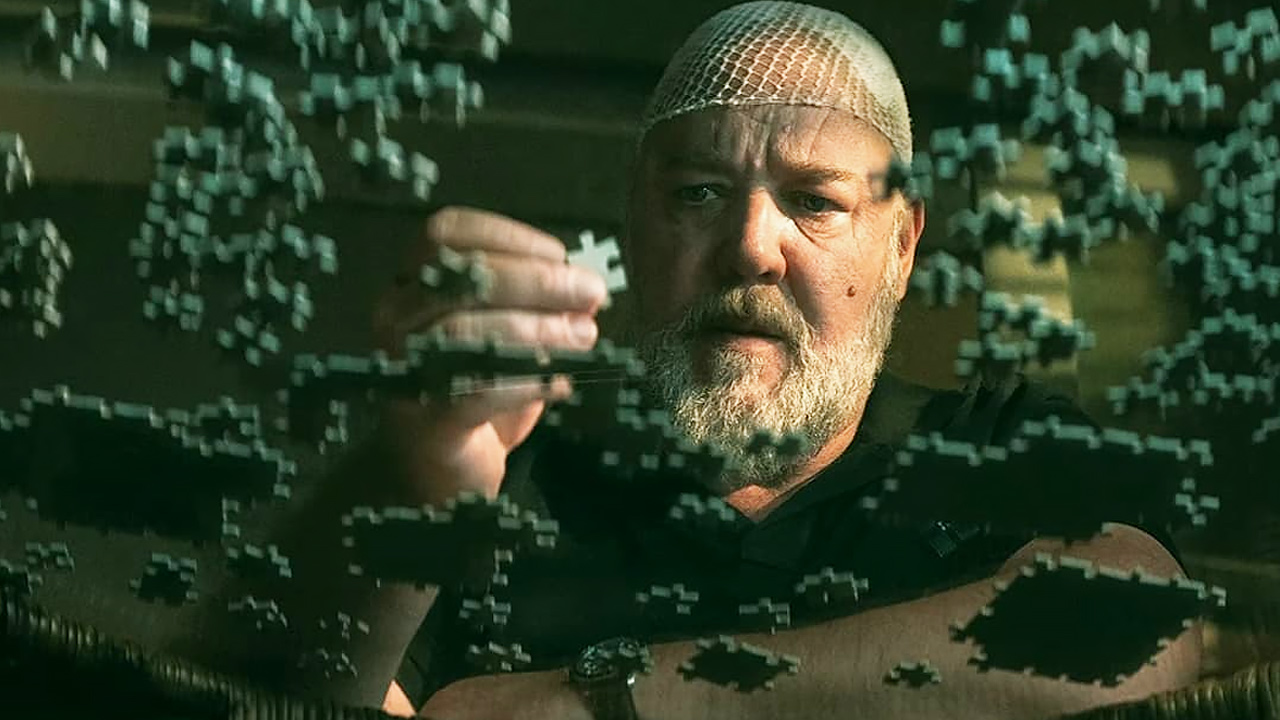Russell Crowe is a detective with Alzheimer’s in pulpy B movie Sleeping Dogs

A characteristically cranky Russell Crowe leads this patchy thriller about a former homicide detective who re-opens an old case despite having Alzheimer’s. Here’s Luke Buckmaster’s review.
The title of Russell Crowe’s new thriller, in which the grizzled star once again walks around looking bothered and bedraggled, was drawn from the idiom “let sleeping dogs lie.” Meaning to ignore a problem on the grounds that tackling it might make the situation worse—another way of saying “sit on the couch and do nothing.” Which may be wise in some circumstances, but hardly screams “heroic” and does not an interesting movie maketh. Thus Crowe’s protagonist Roy—a former homicide detective—gets out and about in this patchy and pulpy B movie, working on an old murder case after a prisoner on death row—Pacharo Mzembe’s Isaac Samuel—pleads for him to re-investigate it.
The twist is that Roy is manifestly incapable of even basic intellectual inquiry: this is a man who puts his television remote in the microwave and leaves notes around the house with messages such as “Your name is Roy Freeman.” Roy, you see, has Alzheimer’s, placing him in the same club of memory-ravaged detectives as Guy Pearce’s amnesiac protagonist in Memento. But whereas Pearce’s character couldn’t recall any short term memories, including conversations he just initiated, Roy’s foggy recollections work in less consistent and more dramatically expedient ways, some things popping into his head and others disappearing for good.
And then there’s the funny looking bathing cap-like thing he wears on his noggin—part of an experimental procedure to return his memories that stimulates his brain with electric impulses. I kept waiting for a super power to zap into his head and/or for the procedure to run amok, perhaps like the computer chip inserted into the quadriplegic protagonist of Upgrade, allowing him to spring to his feet and kick ass but at the not-insignificant cost of making his body subservient to the wishes of a possessive computer program. Or like the disabled gardener in The Lawnmower Man, whose intelligence-enhancing treatments not only increase his IQ but give him the nifty ability of psychokinesis and telepathy.
Adam Cooper, directing a script co-written by himself and Bill Collage (adapting E.O. Chirovici’s novel The Book of Mirrors) resists this sort of madness, and instead the cap on Rusty’s cranium becomes just another element of this movie that feels half-thought and just plain weird. Its dramatic purpose makes things both easier and harder for Roy, who’s warned that “hallucinations are often a common byproduct of the procedure,” in a classic example of “maybe you could’ve told me that before I signed up.” But this doesn’t seem to bother him too much—possibly because he’s played by Russell Crowe, who’s bothered by everything else.

Just as Roy is a bit foggy-brained, so is the film, which is prone to suddenly lurching in different directions—for instance initiating long flashback scenes taking place in the lead-up to the murder in question, of psychology professor Joseph Wieder (Márton Csókás), who was having an affair with one of his students (Karen Gillan). A key suspect, Richard Finn (Harry Greenwood), who has recently died himself, wrote a memoir about the murder that Roy combs for clues. His old partner (Tommy Flanagan) discourages him from reopening the case—let sleeping dogs lie!—but the protagonist of course charges forward, rattling the proverbial bee hive, boosted by those conveniently returning memories.
The story feels disheveled and distractible, as if the film itself has just got out of bed. The same can be said of Crowe, who as usual cuts a rock solid, somewhat irritable presence, though his gravitas is diluted by Sleeping Dogs‘ flaky energy. It’s just a matter of time before someone yells at muddled old Roy “ya just couldn’t let it go, could ya?!”
















